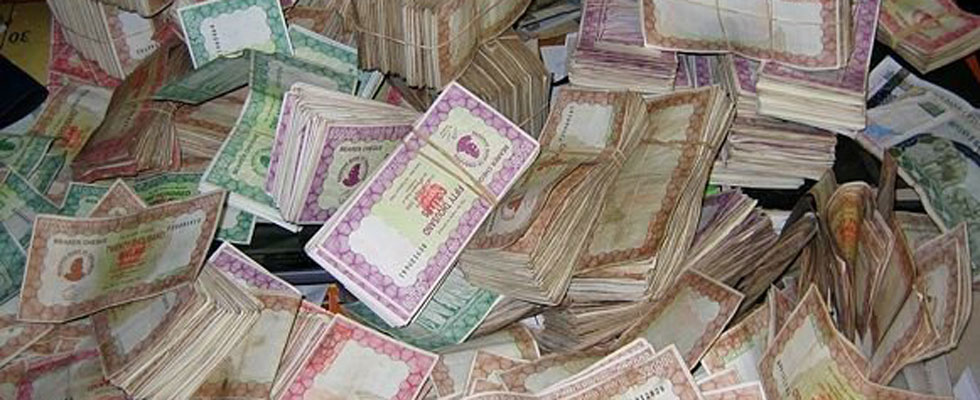The reintroduction of the Zimbabwe dollar is not a realistic option available to this country in the short to medium term given the compelling need to increase liquidity in the economy, the Bankers Association of Zimbabwe has said.
New BAZ president Sam Malaba said remarks by Finance and Economic Development Minister Patrick Chinamasa that the Government was not planning an immediate return of the local unit was therefore laudable as it helped rebuild confidence.
"BAZ is very happy with the pronouncements made by the Minister of Finance and the Reserve Bank of Zimbabwe that the multi-currency will remain in place for the next five years in line with the Zimbabwe Agenda for Sustainable Socio-economic Transformation programme," Mr Malaba said.
He said such pronouncements had helped to buttress the confidence of foreign investors who responded by pouring in millions of dollars to shore up banks' capital in a market starved of liquidity. Financial institutions that have benefited from the growing confidence include AfrAsia Bank Zimbabwe, Ecobank Zimbabwe, Allied Bank, BancABC and NMBZ Bank while Tetrad is about to conclude a deal for the injection of foreign capital.
However, Mr Malaba pointed out that there was nothing amiss about discussing the form, basis and most appropriate timing to reintroduce the local currency.
"These pronouncements have given confidence to foreign investors as we have witnessed the recent investments in the banking sector," Mr Malaba said.
"Reintroduction of the Zimbabwe dollar is not a realistic option available to this country (right now) with the primary focus being to increase liquidity through attracting portfolio and foreign direct investment, mobilising additional lines of credit and growth in exports," the new BAZ president said.
Mr Malaba's remarks also come in the wake of unsubstantiated recent media reports that a return of the local unit was imminent as the economy was choking under a widespread liquidity crunch.
Minister Chinamasa has on numerous occasions, including during his presentation of the 2014 National Budget Statement, stressed the point that the multi-currency regime would run the full course of Zim-Asset programme, Government's medium term economic policy for the period 2014 /18.
The new BAZ president said as part of confidence building and effort to mitigate the impact of the liquidity crisis, it may be necessary to control expansion imports as this was draining liquidity in the economy while crowding out local products.
"The multi-currency regime has provided stability and predictability and this is facilitating an effective and efficient payment system," Mr Malaba said.
Mr Malaba said when the multi-currency was introduced in February 2009, banking sector deposits grew from $383,2 million to $1 billion by November.
Deposits have also grown progressively since then to $4 billion by March 2014, although broad money supply has declined over the years due to a decline in industrial capacity as the economy also contracted.
"Economic activity has measurably slowed, but the multi-currency regime has helped stabilize the economy and set it on a path to growth," the BAZ boss said.
- The Herald
 Concern over Masvingo black market
Concern over Masvingo black market  Kenya declares three days of mourning for Mugabe
Kenya declares three days of mourning for Mugabe  UK's Boris Johnson quits over Brexit stretegy
UK's Boris Johnson quits over Brexit stretegy  SecZim licences VFEX
SecZim licences VFEX  Zimbabwe abandons debt relief initiative
Zimbabwe abandons debt relief initiative  European Investment Bank warms up to Zimbabwe
European Investment Bank warms up to Zimbabwe  Young Investment Professional (YIP) Graduate Programme 2019
Young Investment Professional (YIP) Graduate Programme 2019 











 Young Investment Professional (YIP) Graduate Programme 2019
Young Investment Professional (YIP) Graduate Programme 2019
Editor's Pick